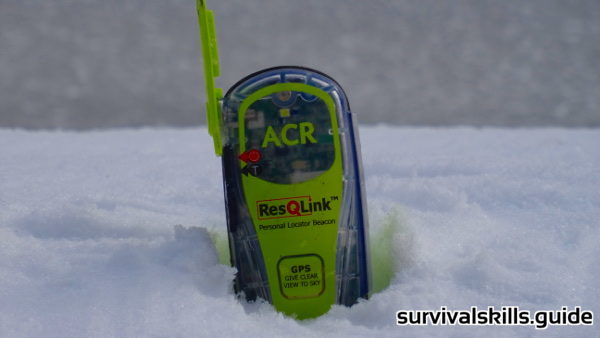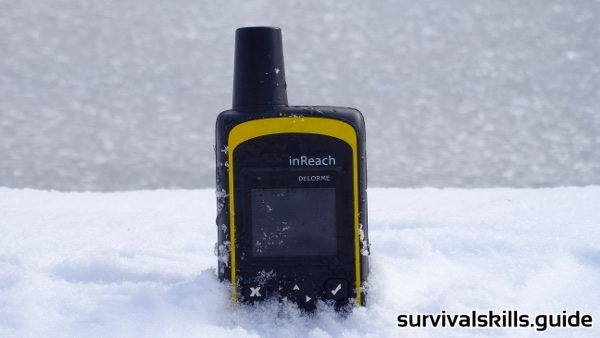I want to share how satellite communication devices have let me down, and why although I use them, I don’t blindly rely on them.
My first disappointing experience with satellite communications was while training as a backpacking guide in the Canadian Rockies. A person from our group took the sat phone out of its waterproof case and tried to practice making a call.
She stayed waiting for a good signal for a while, despite the clear weather. After half an hour, the battery run out (it probably hadn’t been fully charged). We gathered around and she placed the brick back in its case.
It was a great teachable moment: don’t rely on high tech.
While planning for an international field school canoeing program in the Peruvian Amazon I discussed satellite communications with the leader of the trip; the university wanted him to call them with a sat phone at pre-established dates throughout the trip.
He declined. He knew that it was more than likely that at one point during the trip he wouldn’t be able to call (we could be in a densely forested area, or the sky could be covered in torrential rain), and they would worry in vain.
Personal Locator Beacon
A few years ago I considered a satellite device to take in a 25 days whitewater canoeing trip to Hudson Bay. My partner and I were going to go alone, and we wanted a reliable way to signal for help in case we had to.
I chose a ResQlink Personal Locator Beacon; it doesn’t need a subscription, and it’s only for emergency use. It’s the most reliable way of signalling, but it must be used only if a life or limb is in imminent danger.
It took me a long time to convince my partner’s mom of our communications protocol. No news is good news. I told her that we would be sending “test” signals during the trip, but she shouldn’t expect any signal whatsoever. I emphasized that even if we sent signals often, and suddenly stopped, she shouldn’t unleash the cavalry. There were many things that could stop us from contacting her… yet we could be completely fine.
After many arguments, she agreed.
While canoeing the Hayes River our Powermonkey solar charger stopped working, out of nowhere, despite being cared for like a baby.
We managed to keep our camera going using the solar panel of the broken charger and our small Solio solar charger.
Because the ResQlink PLB has limited battery for tests, we signalled only about three times during the trip. We later learned that only two of our signals had been transmitted. It’s worth to note that test signals are much less powerful than the real thing, so a PLB is still the best thing out there for emergency signalling.
With all satellite signalling devices you must also keep into account that Search and Rescue may or may not come to your rescue depending on the weather, terrain, if it’s dark and if they are not busy helping other people. That’s why one should always keep that in the back of their minds. Be prepared to deal with emergencies by yourself. If you break a femur in alpine terrain, at night, and with a blizzard, it’s very probable that you won’t get a helicopter ride…
At least not the same day.
Satellite Messaging Device
For our Six Months In The Wilderness survival expedition, we wanted the ability to send messages back home, as well as more redundancy in our emergency communications. We decided to buy a Delorme inReach SE.
We really liked that we could send emails and texts to our friends and family. The device let’s you know if your messages have been successfully sent. Although we did find out later that some of the messages we had sent never arrived…
After the first few weeks of our survival expedition the Powermonkey solar charger, that we had gotten after exchanging the one that had failed us previously, stopped working. We used it to recharge all our electronics. I tried discharging it fully and recharging it, but I knew it was hopeless. Fortunately, we had another solar charger.
After so many bad experiences with solar chargers, I rather have a waterproof solar panel like the Suntactics S5 that can charge my device directly without charging a battery first. The simpler the system, the more reliable it is.
A month or two before returning to civilization our Delorme inReach acted up. We had kept the screen at a low brightness to conserve the battery, we tried typing a message and the screen froze.
We tried pressing every button, turning it off, leaving buttons pressed, etc.
Nothing worked. The device remained on but we couldn’t do anything with it.
Its battery is not removable so we couldn’t do that. I figured it was a matter of time until the battery ran out and we could recharge it. Hopefully the device would be working again. My partner was really worried that we wouldn’t be able to send messages back home.
We waited, and waited, and waited. After six days the battery run out. Our emergency contacts back home didn’t even notice our absence. We recharged the device and got it working again. If our contacts had expected a message every other day they might have worried and could’ve notified local search and rescue.
I’ve been the subject of a search based on a false alarm before, so I know that an emergency communications protocol needs to be very clear and leave room for error.
Wrap up
This is why I’m a huge believer in no news is good news. I still give my emergency contacts a route plan with probable dates. But I try to leave room for error. That way if my device breaks, the sky is thickly clouded, I’ve run out of batteries, I won’t trigger an unsolicited search and rescue operation.
On the other hand, I also try to foresee potential risks out there and mitigate them. I’m prepared to deal or at least stabilize an emergency in the field. There are so many things that could prevent a search and rescue party from coming to my rescue that I try as much as possible to prevent a serious mishap. Because I shouldn’t push the limits just because I have an electric gizmo that could call a helicopter.
High Tech Fails.





Great article mate, all your advice is much appreciated